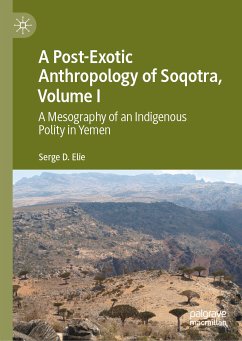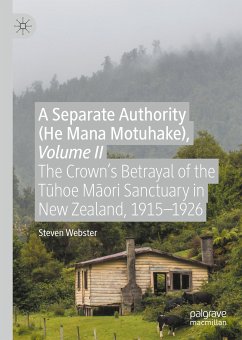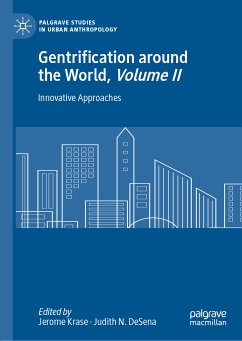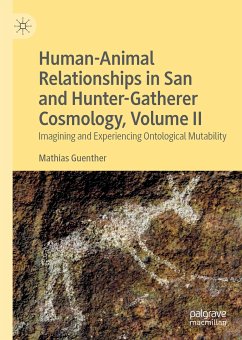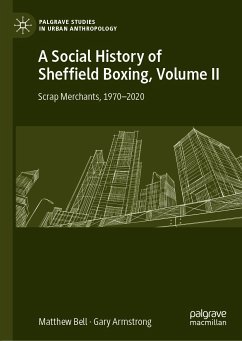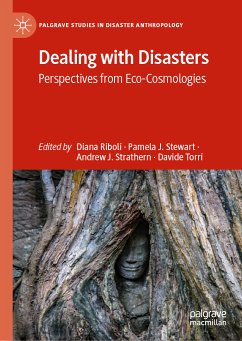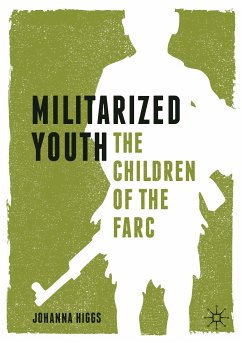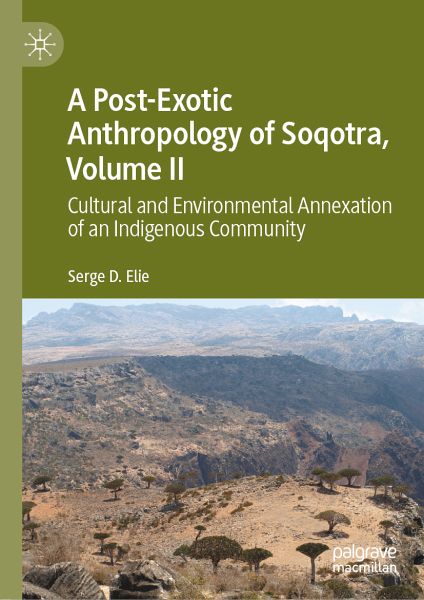
A Post-Exotic Anthropology of Soqotra, Volume II (eBook, PDF)
Cultural and Environmental Annexation of an Indigenous Community
Versandkostenfrei!
Sofort per Download lieferbar
72,95 €
inkl. MwSt.
Weitere Ausgaben:

PAYBACK Punkte
36 °P sammeln!
This two-volume book offers a panoramic explanatory narrative of Soqotra Island's rediscovery based on the global significance of its endemic biodiversity. The first volume, A Post-Exotic Anthropology of Soqotra: A Mesography of an Indigenous Polity in Yemen initiated the analytical inventory of the four key vectors of Soqotra's transition process through a discussion of the first two: economic disarticulation and political incorporation. This volume, A Post-Exotic Anthropology of Soqotra: Cultural & Environmental Annexation of an Indigenous Community completes the analytical inventory by expl...
This two-volume book offers a panoramic explanatory narrative of Soqotra Island's rediscovery based on the global significance of its endemic biodiversity. The first volume, A Post-Exotic Anthropology of Soqotra: A Mesography of an Indigenous Polity in Yemen initiated the analytical inventory of the four key vectors of Soqotra's transition process through a discussion of the first two: economic disarticulation and political incorporation. This volume, A Post-Exotic Anthropology of Soqotra: Cultural & Environmental Annexation of an Indigenous Community completes the analytical inventory by exploring the other two pivotal vectors of transition: cultural modernization and environmental annexation. These two vectors encompass the critical sociocultural spheres and environmental domains in which Soqotra's transformation process is unfolding. The origin of these vectors is situated within Soqotra's long history of exogenous mediations by external actors and their symbolic appropriation of the island into an imaginative geography. The legacy is a "symbolic curse," which has made Soqotra into an ideal playground for fantasist cultural or environmental experiments. Accordingly, this volume undertakes, first, a systematic inventory of the communal effects engendered within the domains of cultural modernization: dissonant linguistic attitudes, alienating consumption practices, divergent religious affiliations, and differentiating economic aspirations. Second, it anatomizes the process of environmental annexation through the reconstruction of the formulation and implementation process of a biodiversity conservation and sustainable development experiment in which the island and its residents are appropriated into an anachronistic paradigm - a pastoral ecotopia - as a blueprint of their future.
Dieser Download kann aus rechtlichen Gründen nur mit Rechnungsadresse in A, B, BG, CY, CZ, D, DK, EW, E, FIN, F, GR, HR, H, IRL, I, LT, L, LR, M, NL, PL, P, R, S, SLO, SK ausgeliefert werden.



